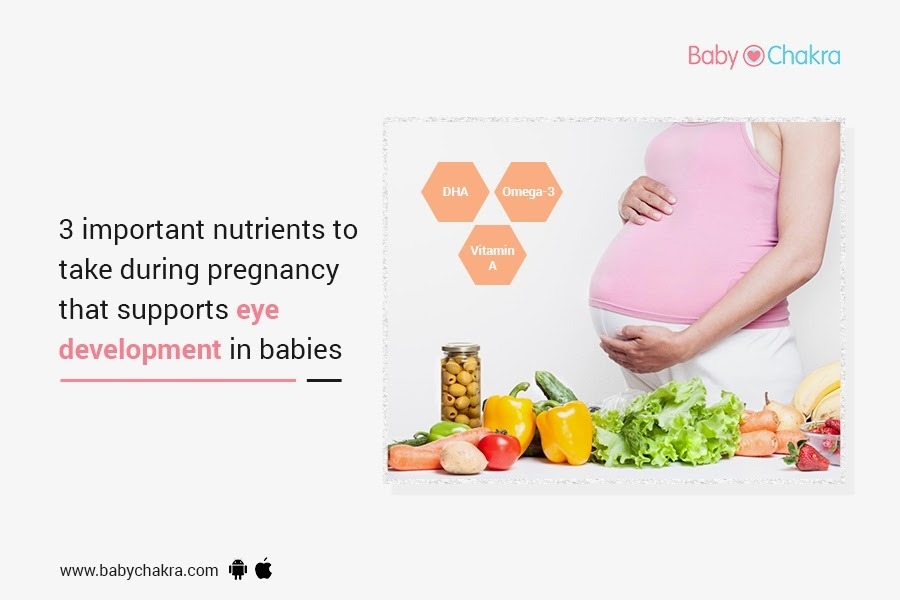
3 Important Nutrients To Take During Pregnancy That Supports Eye Development In Babies
2 Dec 2021 | 2 min Read
Sunaina Khetarpal
Author | 1 Articles
Nutrient requirements during pregnancy are almost the same as those before pregnancy, it might just have a few minor changes. Having a balanced diet with all the essential nutrients is one of the secrets to a healthy pregnancy.
But, along with having a balanced diet, it’s also important to understand the nutrients that you take in for the growth and development of your baby.
Here are 3 key nutrients that support eye development in your baby.
1. Docosahexaenoic acid (DHA) and Omega-3 fatty acids
Docosahexaenoic acid (DHA) is an important omega-3 fatty acid that plays a vital role in the eye and brain development of your fetus. It’s one of the best vitamins to take around the 8th week of the pregnancy, the reason being, that’s the time when the structure of the baby’s eye and retina starts forming.
Omega-3 fatty acids are one of the good fats that the body requires. Omega-3 fatty acids play an important role when the baby is at its peak point of growth and development i.e in the third trimester. It supports the health of the developing eye, heart, brain, and immune system.
2. Vitamin A
Vitamin A, also known as retinol plays an important role in cell growth and division. It is a vital nutrient that plays a critical role in the development of a baby’s eye, skin, cells, and bones.
3. Proteins
Proteins play a vital role in the growth and development of various tissues and organs in the fetus. It also helps in maintaining the increased supply of blood to the fetus. Lutein is an important carotenoid that takes part in several functions of eye development.
A


Suggestions offered by doctors on BabyChakra are of advisory nature i.e., for educational and informational purposes only. Content posted on, created for, or compiled by BabyChakra is not intended or designed to replace your doctor's independent judgment about any symptom, condition, or the appropriateness or risks of a procedure or treatment for a given person.
